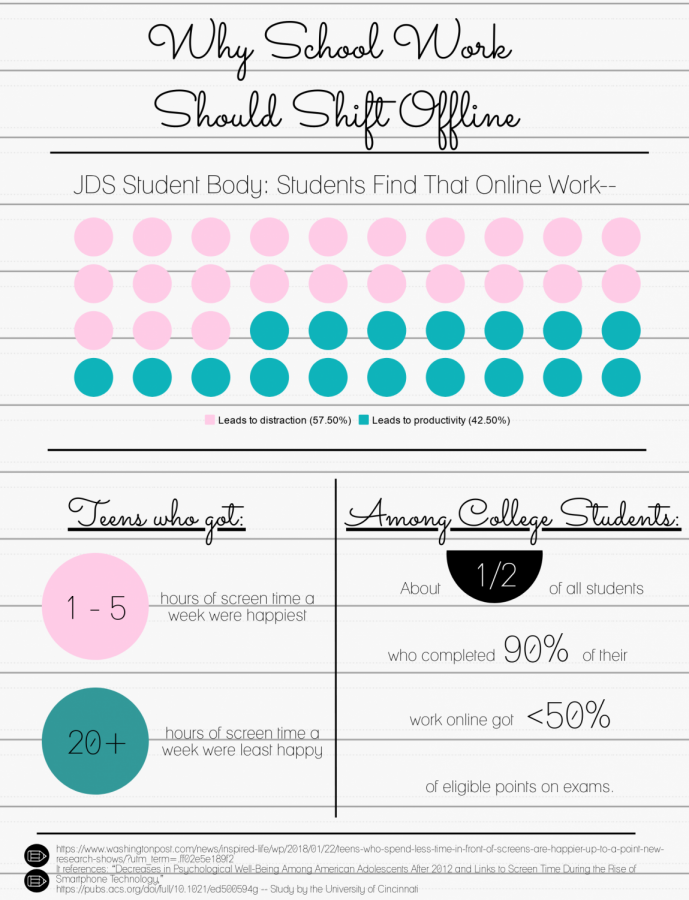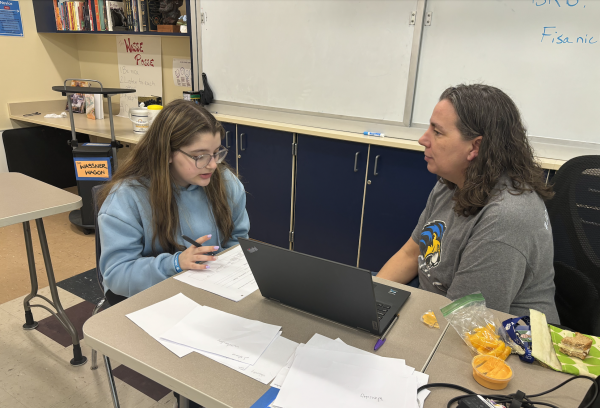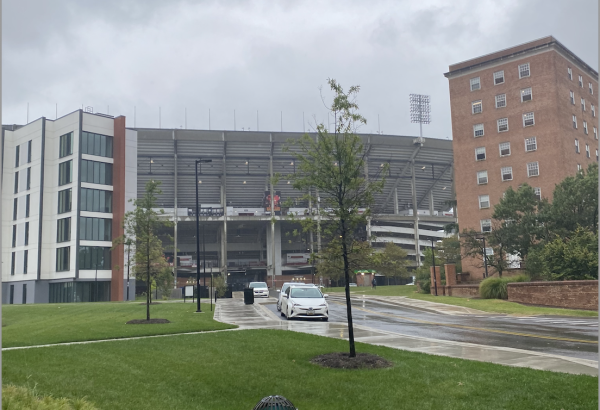Why there should be less work online
February 15, 2019
Too often I’m trying to finish the remainder of my homework when my computer chimes with a new notification, sucking my attention to another corner of the web.
Technology is now fully a part of our lives and education system, and though I consider myself a dedicated student, technology has made it increasingly difficult for me to complete my assignments. Online work seems to lead to distraction, procrastination and possibly an addiction to electronics. While convenient, there should be a balance of online and offline work.
Using computers leads to classroom distraction. Given the opportunity, students will text each other, play games or do seemingly productive activities like checking their email or PowerSchool, rather than staying on topic.
Due to students’ increased distraction from technology, English teacher Melissa Fisanich switched from everyone taking computer notes to having a sole class notetaker. This past quarter, she tried something new by requiring some of her classes to take notes by hand because, according to her, typing, while faster, can lead to a useless “transcript” of the material causing less student engagement.
“That skill of thinking ‘How can I get that down in just a sentence?’ is the skill that note-taking should bring out, even more than just providing something for you to look back on,” Fisanich said. I agree with Fisanich; I almost always take my notes by hand because it allows me to process the information more effectively.
Outside of the classroom, working online can decrease productivity and focus. I polled 40 students, and 23 said that they are more distracted than productive when working online. While this is not a large majority, it still shows that a significant portion of the student body doesn’t necessarily perform best when working online. The administration should understand and account for this.
In fact, a study of college students by the University of Cincinnati said that out of all students who completed 90 percent of their homework online, half of them got less than 50 percent of eligible points on exams. Students who mixed their homework methods performed better, since it’s easy to drift off to social media, Netflix, or, again, what seem like helpful apps, such as email.
Many argue that working on computers lets them be more efficient and organized, but this is unfair to put onto all students. Others need the opportunity to write by hand and later type everything up or keep everything offline. Currently, the system is catered to those who perform better online, so offline-workers have few choices of how to complete their school work.
Lastly, the mental health of students is on the line with more technology usage.
The Washington Post cites the report “Decreases in Psychological Well-Being Among American Adolescents After 2012 and Links to Screen Time During the Rise of Smartphone Technology,” saying that increased time spent on screens decreases teenagers’ self-esteem and overall happiness, aligning with previous research that connects technology use to teenage depression and anxiety.
We’re already struggling with stress caused by heavy workloads, so, as the school has expressed concern with our mental health and supported the student-created mental health awareness club, improvements must still be made.
The whole world is becoming more dependent on our electronics for their benefits, but for many, these are outweighed by disadvantages. The school should make changes to the way that work is assigned, whether that’s in the form of printed guided notes and online or hard copy readings, rather than just a PDF that is attached on a Google Classroom post.
It’s time to make it easier for students to take notes and complete assignments offline while not inhibiting their convenience.

















